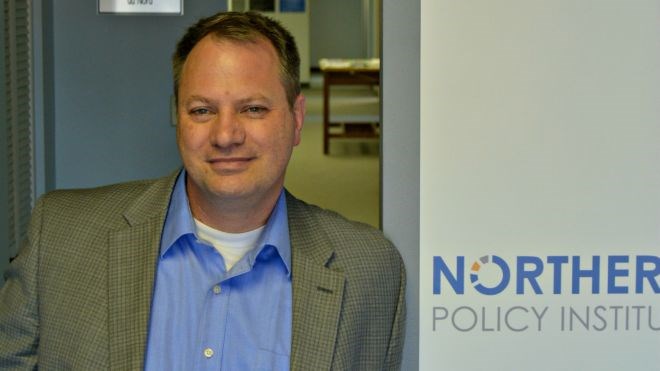Have you read it yet? Have you taken the time to draft even a short reply to it?
Do you know the deadline for comment is Sept. 15? Which of the themes it outlines do you think should be a priority? What about the 37 directions it includes. Too many? Too few?
I am referring to the draft Northern Ontario Multimodal Transportation Strategy. A discussion document was recently released for public comment by the Province of Ontario (available at www.nomts.ca).
This strategy will impact what roads get built, which ones get twinned, and whether investment is in active or traditional transportation.
It will set the basis upon which decisions will be made about airport and port reinvestment, rail service (passenger and freight), and who will, or won’t, get mass transit.
The strategy will help decide whether we pour money into sustaining increasingly unsustainable winter roads, or invest in significant expansion of all-weather connections.
Few of the Northerners that I have spoken to since its release have even heard about this study and fewer still plan on sending in comments on the draft.
This, despite the fact that the study has been ongoing for almost five years, will have a huge impact on each and every one of us, and will ultimately result in the expenditure of billions of public dollars.
That’s your money. Maybe not all of it, but some of it is, and you have been invited to comment, specifically and personally, on how it will be spent.
I encourage you to step up, even if your industry association, your band, your local municipality, or your union will be commenting already on your behalf.
You have a unique and valuable perspective; it is in your interest to share it.
For those of you who vote and think, “that’s enough” – it isn’t.
A functional democracy requires more than an occasional check in on how things are going.
In poll after poll, we have asked for increased openness and accountability from our governments.
The work involved in that goes both ways. In this instance, the public servants have done their part, now we have to do ours. By the way, for those of you who don’t vote, here is your chance to make up for that oversight.
The draft strategy is an impressive piece of work, summarizing in an easy-to-follow text and some very good maps what the authors say they and their colleagues have heard over the last five years.
The document lays out, in a straightforward way, the options before us and why certain options are suggested over others. It is a fountain of information both for those who are transportation experts and for the rest of us.
The maps, in particular, show clearly the assets already in place, the gaps that have been identified and the priorities that have been set.
Nevertheless, there are things in this draft strategy that we should all be aware of, and if wrong or problematic, we should take issue with before it is too late.
For example, the strategy states that the Trans-Canada Highway throughout Northern Ontario is “generally well-served” by cellular coverage with only two significant problem areas worthy of note: Marathon-White River and Hearst-Longlac.
In another section, the strategy proposes to occasionally close portions of Highway 11 between North Bay and Thunder Bay, and Highway 17 between Thunder Bay and Manitoba to allow for safe passage of overweight or oversize vehicles.
Then there is a broad ranging section on addressing economic, technological, environmental and social change.
Electric cars, airships, local food, and remote service delivery all get passing mention here.
“My taxes pay your salary.” How many times did Oscar Leroy or some other crotchety coot use this line on Corner Gas or some other sitcom to put some harried politician or public servant in “their place?”
What makes the line so funny is that it is technically true yet patently false.
We do, collectively, foot the bill and so we should, collectively, get a say in where that money is spent.
You have until the 15th of September to put your mouth where your money already is; what are you waiting for?



